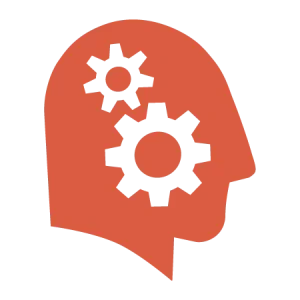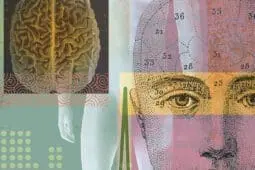
Science & Research
Exploring the evidence behind what we doThe Little Things
Love in the Consulting RoomBarbara Fredrickson’s research on the biology of love and positivity demystifies our ideas about the role of intimacy, connection, and resilience in our... Read more
VIDEO: What Does a Client Really Want from Therapy?
Stephen Gilligan on the First Step Toward a Creative BreakthroughIn this clip Stephen Gilligan talks about one of the techniques he employs to help new clients be more specific in setting their therapy goals. Read more
VIDEO: In Search of the Therapeutic Breakthrough
Bruce Ecker on Finding the Underlying Reasons for Detrimental BehaviorsWatch this clip to hear Bruce talk about a client unwilling to leave an abusive situation and the approach he uses to uncover the underlying reasons why. Read more
Adult Attachment Disorder: 3 Detours to the Right Hemisphere
For Clients with Adult Attachment Disorder, Use the Left Hemisphere to Guide You to the Right"People with avoidant attachment histories are too closed down to have access to experience their right-hemisphere processes," says Daniel Siegel, who's... Read more
The Next Big Step
What’s Ahead in Psychotherapy’s Fascination with Brain Science?Labeling behavior in fancy neurophysiological terms can make what we do sound more scientifically rigorous than the notoriously fuzzy language of... Read more
The Great Deception
We’re Less in Control Than We ThinkMost of us put much too much faith in the power of our conscious minds to bring about lasting change. Instead of looking up the higher branches of... Read more
Beyond Phrenology
Let’s Look at How the Brain Really WorksIf therapists are going to bring genuine insights—not just soundbites—from neuroscience into the practice of therapy, they need the nuanced, sophisticated... Read more
Editor's Note - January/February 2014
The Impassable DivideMore and more therapists have begun wondering how far all our impressive-sounding talk about the brain has gone in improving therapy’s effectiveness. After... Read more
Why We Focus on the Negative
Rick Hanson Explains the Evolution of the Negativity BiasMuch can be made of the power of positive thinking, but the real question is, why do we tend toward the negative in the first place? Read more
The Triune Brain: Three Brains Attempting to Work as One
How the Evolution of the Human Brain has Led to the Existence of the Triune BrainWhen thinking about the general evolution of humans, we primarily compare ourselves to our chimp-like ancestors. But when it comes to the specific evolution of... Read more
VIDEO: Social Conditioning, Or Are We Just Born That Way?
The Neuroscience Behind Primary Gender TraitsLouann Brizendine talks about one of the key neurobiological distinctions between the sexes: the need to reproduce vs. the need to nurture the helpless. Read more
How To Talk About Sex With Men
Esther Perel Shows How Easy It Can BeEsther Perel introduces the subject of a man’s sexuality, sexual practice, his approach to sex, and its place in his life in an effortless, organic way. Read more
Moving Beyond DSM-5
David Mays on the Future of PsychotherapyDavid Mays talks about his disappointment in how medications are currently used and prescribed, the changes he’s seeing taking place, and what those changes... Read more
Male-Friendly Psychotherapy
How Brain Science Illuminates Gender DifferencesPat Love explains how the brain engages and reflects with the emotional state of others and why it comes down to gender. Read more
Examining the Most Controversial Change in DSM-5
Gary Greenberg On The Bereavement ExclusionWhen examining the various changes made in DSM-5, Gary Greenberg finds the most controversial one to be the removal of the bereavement exclusion from the major... Read more
Empowering Today's Parental Authority Figures
Ron Taffel on What Families Can't Function WithoutRon Taffel discusses how Generation X and Millennials handle authority and raising kids differently than their parents. Read more
Responding to the Critics of DSM-5
Darrel Regier On Why Diagnostic Changes Were MadeDespite the number of criticisms it has incurred, there was a method to the so-called madness of DSM-5. Read more
Rethinking the Autonomic Nervous System
Stephen Porges on a Popular Neuroscientific MisconceptionFor decades therapists have been taught that there are two sides of the autonomic nervous system complementing each other. But according to Stephen... Read more
What's The Value Of A Diagnostic Category In The DSM?
Gary Greenberg on the Role of Economic Factors in the Shaping of the DSMGary Greenberg deconstructs the DSM and how it affects the field and your practice. Read more
How to Help Learning Stick for Clients
What Can Neuroscience Tell Us About Psychotherapy?It’s usually easy to see when clients are tuned out or turned off, simply not absorbing what you’re trying to get across. What’s puzzling is when things... Read more
Wearing Your Heart on Your Face
The Polyvagal Circuit in the Consulting RoomPsychophysiologist Stephen Porges’s research on the polyvagal nervous system provides insight into the evolutionary roots of trauma and anxiety, and how... Read more
You’re Never Too Old to Change
Michael Gelb On The Most Effective Methods Of ChangeMichael Gelb discusses time-tested wisdom that helps people change their lives. Read more
Teaching Neuroscience to Our Clients
How One Client Effectively Applied Dan Siegel’s Neurobiology LessonPsychotherapy Networker Founder Rich Simon listens to Dan Siegel about neuron "sponges," empathy, and how it all impacts depression. Read more
Is Sexual Orientation Hardwired In Our Brain?
Louann Brizendine On How Sexual Preference Is DeterminedPsychotherapy Networker Founder Rich Simon asks neurobiologist Louann Brizendine about sexual orientation and the brain Read more
How the Brain’s Negativity Bias Impedes Change
Rick Hanson On Understanding Why We Focus On The NegativePsychotherapy Networker Founder Rich Simon talks to Rick Hanson about negativity bias and how it can be one of the biggest challenges to helping clients... Read more
Creating Adventure And Play In Therapy
How to Vitalize Your Therapeutic StyleThe more we learn about the emotional brain, the clearer it becomes: to have real therapeutic impact, we need to create experiences that help clients learn to... Read more
Unlocking The Emotional Brain
Is Memory Reconsolidation the Key to Transformation?New research into the complexities of memory reconsolidation offers important clues about how we can make the most elusive of consulting room events—the... Read more
Therapy Isn't Brain Science
Knowledge Doesn’t Replace Clinical SkillTherapists were doing helpful work long before neuroscience made its official debut and the field developed a collective case of “brain fever.” In fact, at... Read more
Is Technology Changing Our Minds?
What Therapists Need to Know in the Digital AgePsychiatrist and neuroscientist Gary Small on what therapists should know about how technology is altering our brains, for both good and ill. Read more
Depathologizing the Borderline Client
Learning to Manage Our FearsInevitably, given their history of trauma, many borderline clients will trigger their therapists from time to time. But forgoing the urge to blame these... Read more




























